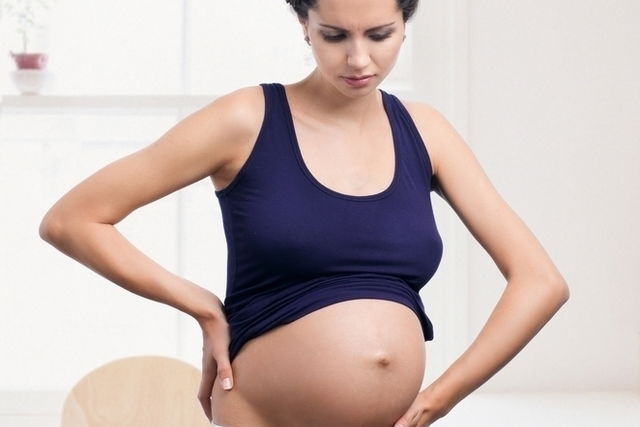Pelvic pain during pregnancy is normal and can be associated with certain changes that happen to the mother’s body during pregnancy, such as increased weight and hormonal changes.
During pregnancy, the pelvic joints can get rigid or unstable to prepare the mother’s body for labor, and this may cause discomfort, pain, and even affect mobility. However, the mother does not need to worry as this does not affect the baby.
Pelvic pain does not generally indicate a problem with pregnancy and usually disappears right after the baby is born. However, If the pelvic pain comes associated with other symptoms such as fever, vaginal discharge, or a burning feeling when urinating, it is recommended to seek medical help immediately. It is also important that you attend all prenatal consults and consent to testing as recommended to ensure maternal and fetal health.

What causes pelvic pain during pregnancy?
Pelvic pain during pregnancy is typically caused by:
1. Increase in baby weight
Increases in the baby’s weight, especially during the first trimester of pregnancy, can lead to pelvic pain. This pain is related to stretching and relaxing of the pelvic ligaments and muscles to make room for the baby.
How to relieve: Avoid strenuous activity like heavy lifting or carrying weight. You can also participate in activities such as water aerobics, walking, and Kegel exercises to strengthen the muscles and ligaments of the pelvis.
2. Body changes
Changes in the mother’s body are completely normal during pregnancy. One of the main body changes is the curvature of the spine to accommodate for the baby’s growth and prepare for labor. This can cause relaxation of pelvic muscles and ligaments and cause pain in the pelvic area.
How to relieve: Performing physical activities can help strengthen the pelvic and back muscles. Pregnant women should avoid wearing high heels, as well as standing on just one leg.
When sleeping, you can keep your spine aligned by sleeping with a pillow between your knees. In some cases, the doctor may also advise a pregnancy belt to support your bump or physiotherapy to strengthen the pelvic muscles.
3. Hormonal changes
Pelvic pain can be caused by the release of a hormone called relaxin, which acts by relaxing the hip and pelvic ligaments and joints to make room for the growing baby. This hormone is released in higher quantities during labor to ease the passage of the baby, and it may cause pelvic pain, which resolves after labor.
How to relieve: You will need to rest and perform exercises targeted at strengthening your pelvic muscles. The doctor may also recommend wearing a belt for the hips to help stabilize the joints and improve your day-to-day activity.
4. Increase in mother’s weight
For nine months each woman may put on 15 to 26 pounds. That rapid increase in weight can overload the pelvic muscles and ligaments, causing pain. This type of pain is be more frequent in women who were overweight or had a sedentary lifestyle prior to getting pregnant.
How to relieve: Wear more comfortable shoes, and avoid straining your back. Remember to use your arms to support yourself when sitting down or getting up.
It’s important to do light-intensity activities such as walking and water aerobics to manage weight and strengthen the pelvic muscles. You can also consult your doctor or registered dietitian regarding how to maintain a healthy, balanced diet.
5. Placental abruption
Placental abruption can happen in any stage of pregnancy. One of the most common symptoms is sudden pain in the pelvis, although you may also experience hemorrhage, intense abdominal pain, weakness, paleness, sweating, or tachycardia.
How to relieve: if you suspect a placental abruption, you should seek medical help immediately or go to the nearest emergency department to get examined.
6. Infections
Some infections such as a urinary tract infection, gastrointestinal infection, appendicitis, or sexually transmitted infection can cause pelvic pain. These types of infections are also associated with symptoms such as fever, chills, nausea or vomiting. If you think you may have a UTI, report your symptoms in our UTI symptoms checker.
How to relieve: You should be assessed immediately to start the most adequate treatment.
When to see a doctor
It’s important to seek medical help immediately when you experience pelvic pain with other symptoms such as:
- Fever or chills;
- Pain or stinging when urinating;
- Lumps;
- Pain in the intestinal region;
- An intense pain on the right side of the abdomen.
In these cases, the doctor will need to order tests such as a bloodwork and imaging to assess the mother and the baby’s health.






























